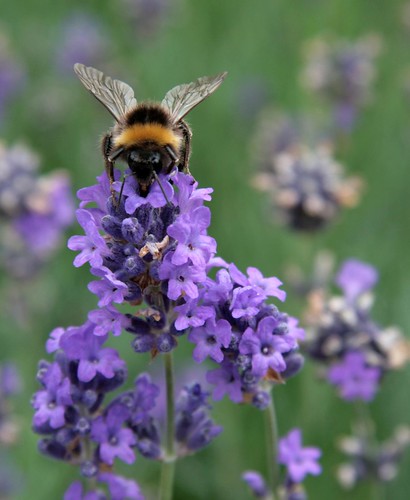There’s a growing worldwide concern for the plight of honey bees. Colony Collapse Disorder–where entire colonies of bees seem to vanish without a trace–has become an increasing threat to global food security. New studies suggest that pesticides play a significant role in this disorder which effects the bees’ nervous systems, apparently making them unable to find their way back to the hive. Numerous articles and films like Vanishing of the Bees and Queen of the Sun have helped spread the word and encouraged folks to help the bees. Concern for bees is as widespread as concern for polar bears stranded by melting sea ice.

Amateur beekeeping has enjoyed a tremendous spike of late. In the last year or so, approximately 100 new beekeepers have appeared in the Greater Portland, Maine area. And the local Cooperative Extension Service has stepped up beekeeping classes to meet the new demand.
We started beekeeping by default, really. A friend of my sister’s asked to put his three hives in our backyard about 14 years ago. He tended them for a while but then, like the bees, vanished himself. Number disconnected. So…we have bees. Over the years we have taken the classes, lost a couple of hives, grew some queen cells, gained a couple of hives, got stung, made a sticky mess of the kitchen, then rejoiced when the Honey Exchange opened in Portland and offered to spin the honey out of the comb for us. We got lots of honey–last year we harvested nine gallons from two hives, after leaving plenty for the bees. We kept several gallons for ourselves, as we love honey! The rest sold within a week.
Late last summer, we got two new northern queens and created two new hives. At the beginning of winter, we made Styrofoam boxes which fit very loosely over the hives to keep them warm. This seemed to work well, as all our hives, including the new ones, came through the winter. A big apple grower that we know of in Yakima, Washington put his truckloads of hives in an apple barn for the winter and had similar success. It’s more often than not that some hives will not survive the winter and always a relief when they do. Beekeepers worry about their bees as you would your pets. Fortunately, everyone survived and we now have four hives.
Last week, we took five frames of brood (young bees) from one of the new hives and added them to a weak hive. We’re crossing our fingers that this will rejuvenate the hive. This week, we’re adding empty frames for the bees to fill to accommodate the goldenrod bloom. In September, we’ll harvest the season’s yield and tuck the bees in for the winter. Don’t worry; we leave them about 80 pounds of honey and keep a close eye on them all fall. We will feed them sugar water if the fall flowers aren’t plentiful enough. Then we cross our fingers again and worry about them all winter.